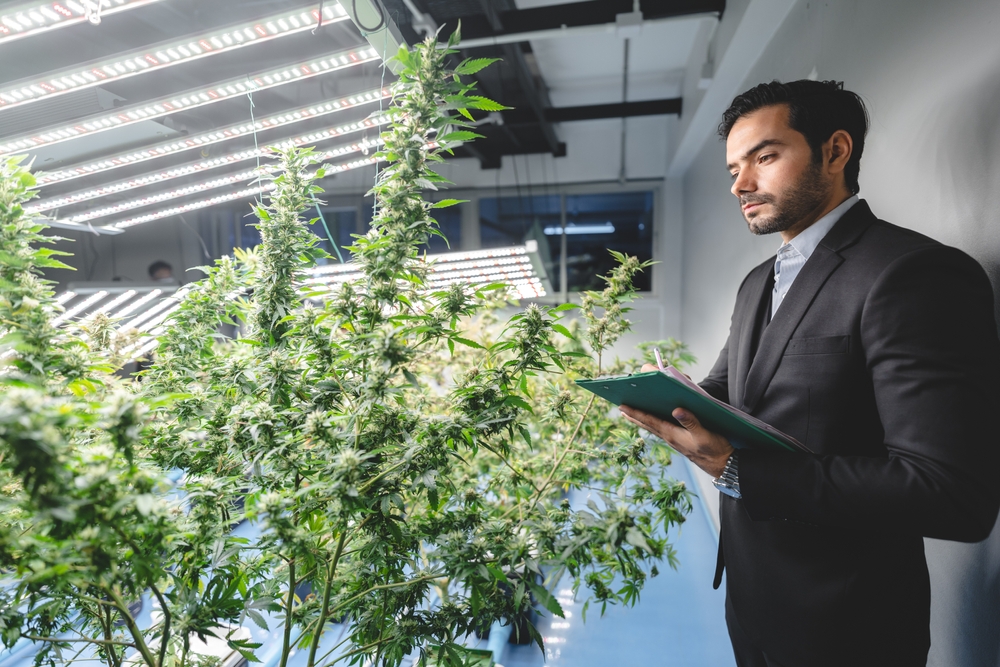For patients who have Parkinson’s disease, it has always been a daily struggle with life-challenging moments, especially for the older population. Medical marijuana is becoming an acceptable substitute as patients seek more natural methods to manage their conditions. Now that cannabis is medically legal in 38 states, many people, not just patients but even caregivers, have hope to benefit from cannabis. We will talk about the ways Medical Cannabis Helps Parkinson’s Disease, especially about the motor and nonmotor symptoms, along with the Research that supports its use.
Defining Medical Cannabis Helps Parkinson’s Disease and Its Affected Population
Parkinson’s Disease (PD) is a chronic progressive neurological disorder that affects the nervous system and eventually results in physical immobility. It occurs mainly in older people. This condition happens when the brain’s dopamine nerve cells start to die. Dopamine is a chemical that helps control movement. PD patients experience symptoms like tremors, stiff muscles, and increased relaxation, significantly diminishing their quality of life.
Motor and Non-Motor Symptoms of Parkinson’s Disease
There are two types of parkinson’s symptoms; one of them is motor, and the other one is non-motor. Like other ailments, this one, too, has a plethora of weaknesses associated with it.
A. Motor Symptoms
Shaking of hands, stiff or tight muscles, slow or infrequent motions, and trouble maintaining balance are symptoms of motor problems, mainly occurring during movement. Accomplishing once simple tasks—hygiene, ambulation, and even eating—becomes catastrophically difficult over time.
B. Non-Motor Symptoms
Diminished mobility is not the only issue; other possible challenges that can also be present are persistent thoughts of sadness, anxiety, and a variety of different mental concerns; lack of clarity; and many more. These tough-to-see feelings can undoubtedly be challenging, making achieving optimal functioning even tougher. In this case, a patient feels that he is venting out and would prefer remaining in isolation.
Treatment Options for Parkinson’s Disease
In most cases, doctors prescribe levodopa to relieve symptoms for people living with Parkinson’s disease. While levodopa may alleviate some symptoms, unfortunately, it does not cure the disease. Furthermore, with time, levodopa may stop working for some patients. Additionally, depression and insomnia are common among patients, and often their treatment is neglected.
Cannabis Treatment
Medical cannabis has become a potential treatment option in the past few years. Modern Research indicates that cannabis may contain helpful properties for treating chronic disorders. Due to cannabinoids that engage with the body’s endocannabinoid system, a wide range of essential functions, such as pain relief, movement, and mood, can be effectively managed. As a result, patients who have Parkinson’s have an alternative treatment option through medical marijuana.
A. The Procedure for Medical Marijuana Therapies
Marijuana is a derivative of the cannabis plant and primarily contains two significant active components: THC (tetrahydrocannabinol) and CBD (cannabidiol). THC is known for its psychoactive effects, which can produce a “high.” CBD may offer therapeutic benefits without the “high” that comes from THC. THC and CBD work by interacting with the endocannabinoid system, which helps control functions like movement, pain, and mood.
Some early research suggests cannabinoids might have neuroprotective properties, but this has not been proven in clinical settings. This is likely to slow down diseases such as Parkinson’s, which damages the brain over time. The body’s relationship with cannabinoids is a rewarding scientific research area. It brings us the knowledge of the potential advantages medical marijuana might offer in healthcare services.
B. Impacts on Motor Symptoms
Cannabis has a positive effect on people suffering from the symptoms of Parkinson’s Disease. There is a view that the combination of THC and CBD in cannabis may provide positive benefits. THC is known to alleviate shaking and muscle spasms or rigidity. THC may assist with muscle relaxation and rigidity, common in Parkinson’s patients. This depicts that marijuana can help in managing the symptoms of Parkinson’s, together with other treatments.
C. Effect on Other Symptoms
Cannabis might be beneficial for non-motor symptoms of Parkinson’s. Those non-motor symptoms, along with motor symptoms, are more complex to address with different medications. For instance, CBD might alleviate anxiety and depression, which are common in Parkinson’s patients. Moreover, sleep is also a problem in individuals suffering from the disease; improvement can be noted in their sleep with the use of both THC and CBD.
Clinical Experience and Parkinson’s
Both clinical trials and patient testimonials indicate promising potential benefits of medical cannabis for individuals with Parkinson’s disease. These findings suggest that cannabis may help relieve symptoms and improve the quality of life for people dealing with this complex neurological condition.
A. Research Analysis
Though more Research is needed, some small studies show promise for the treatment of Parkinson’s disease with cannabis. Also, suggesting medical marijuana helps manage a broader range of symptoms than initially understood.”
B. Patient Testimonials
Several testimonials from patients support medical cannabis due to the relief they experienced personally. Some report diminished tremors, more effortless movement, and better sleep. A prominent advantage of medical marijuana is anxiety relief, which is especially beneficial for those with Parkinson’s, depression, or feelings of isolation. Though high-quality, large-scale clinical trials are limited
C. Ongoing Research
The possibilities of using cannabis to treat Parkinson’s patients show promise. However, more Research still needs to be done. Most studies have small sample sizes, so more extensive studies are crucial to understanding the effects and consequences over time. Even though medical marijuana is permitted in 38 states, restrictions in certain areas can limit research opportunities and prevent patients from receiving treatment. Regardless, the increasing number of patients providing their testimonies and more scientific evidence suggest that CBD may play an essential role in treating Parkinson’s disease in the future and might significantly improve treatment plans.
Treatment Practices of Parkinson’s Disease and Prospects in Medical Cannabis
The use of medical cannabis for people who have Parkinson’s disease and other related disorders is on the rise. Cannabis aids patients differently; hence, tailoring the treatment for each patient individually is very important. Cannabis is unlikely to provide a cure for Parkinson’s patients. Still, there is growing support for the notion that it can ease specific symptoms, particularly when other treatment methods have proved ineffective.
With increasing Research, medical cannabis could help mitigate the effects of spasms and tremors in the future. This shift in focus in the alternative treatment strategy is hopeful for the patients and their caregivers, as well as the sentinel of Parkinsonism and Research. Enhanced understanding of the relationship between cannabinoids and the nervous system may heighten the already growing importance of cannabis for the treatment of this intricate disease.
Summary
Parkinson’s disease is a complicated brain disorder that impacts everyday life. It causes symptoms like shaking, stiffness, and slow movements. Recent studies suggest that medical cannabis might help reduce some of these symptoms. Cannabinoids, especially THC and CBD, may help reduce tremors and improve movement control. Medical cannabis may help manage symptoms like anxiety, pain, and sleep problems. This can provide a more complete way to enhance the well-being of people living with Parkinson’s.
FAQs
How to get a Medical Marijuana Card in Connecticut?
To get a Medical Marijuana Card in Connecticut, patients need a confirmed Parkinson’s diagnosis from a registered healthcare provider. Once certified, they can apply through the state's medical marijuana program.
Patients buying medical marijuana in Hattiesburg must be registered with Mississippi’s medical cannabis program. It’s important to choose strains with CBD or balanced THC:CBD ratios to help manage Parkinson’s symptoms like tremors or sleep issues.
Can I buy medical marijuana in Hattiesburg for Parkinson’s?
Patients buying medical marijuana in Hattiesburg must be registered with Mississippi’s medical cannabis program. It’s important to choose strains with CBD or balanced THC:CBD ratios to help manage Parkinson’s symptoms like tremors or sleep issues.
Is medical marijuana safe for seniors with Parkinson’s?
Yes, medical marijuana for seniors can help reduce tremors, stiffness, and sleep problems. However, it's important for older adults to start with low doses and consult a medical professional to avoid side effects or interactions with other medications.
Can parents with Parkinson’s use medical marijuana?
Medical marijuana for parents can offer relief from both motor and non-motor Parkinson’s symptoms. It should be used responsibly under medical guidance to ensure it doesn’t interfere with caregiving responsibilities or daily activities.
Is marijuana detox needed after stopping use?
Most patients don’t need a formal marijuana detox, but some may experience mild withdrawal like irritability or sleep trouble. Gradually reducing use under a doctor’s advice can help manage these symptoms.





